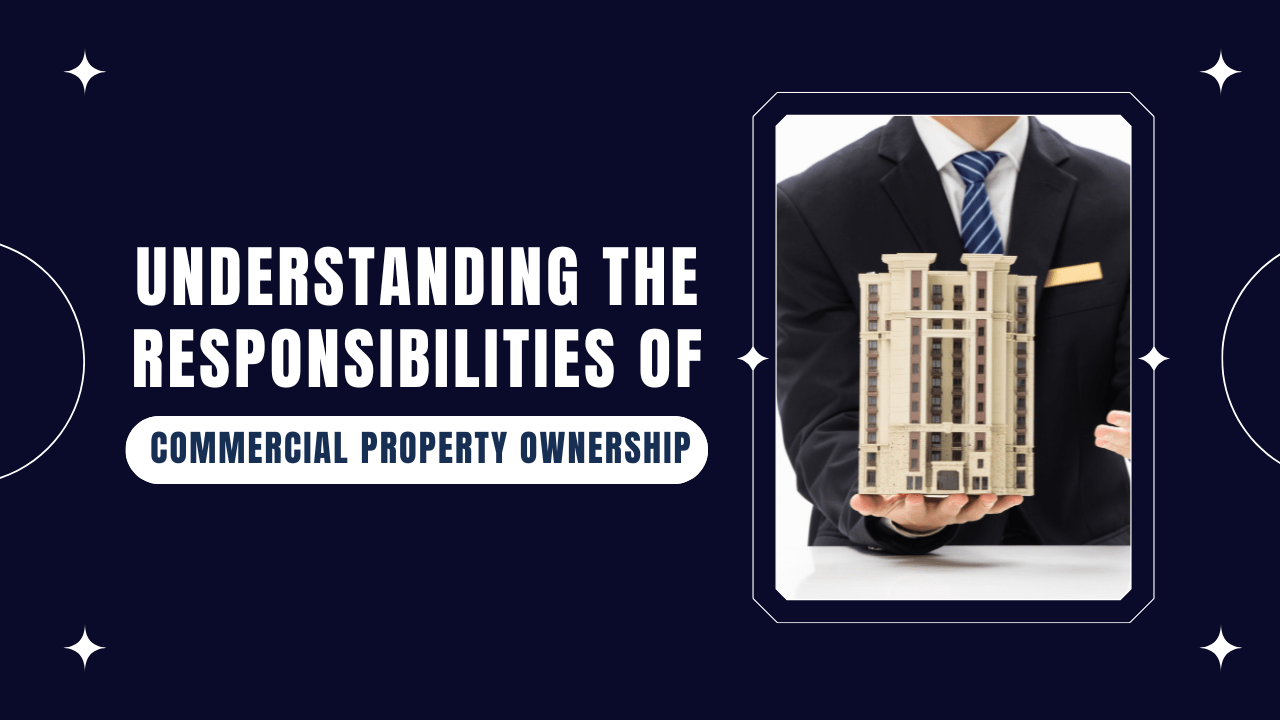If you’re thinking about investing in commercial properties, it’s important to be prepared. While investing in these types of properties is a smart way to diversify your real estate portfolio and increase your earnings, there are some nuances that investors aren’t always prepared to tackle. If you’ve never invested in commercial real estate before, you’ll need to spend some time investigating both the sales and rental markets so you know what kind of inventory is waiting for you. You’ll also want to focus on the type of commercial property you want to acquire. Are you interested in retail spaces? Industrial warehouses? There are a lot of options.
Most importantly, you should surround yourself with experts who can help you navigate the market and the process. Southern California commercial property management companies, for example, can provide a lot of leadership when you’re trying to understand the responsibilities of commercial property ownership.
Here are some of the things that we talk about at Bell Properties when an investor comes to us interested in the commercial property market.
Choosing to Invest in Commercial Property
Some investors build an entire real estate career around commercial property and others invest in this market in order to diversify an existing real estate portfolio. Whatever your reasons for choosing this path, you need to know that there are some fantastic benefits to investing in commercial property. However, there are different rules and standards for financing, taxes, and legal responsibilities.
Prepare yourself for a different process when you’re acquiring commercial real estate, renting it out, and maintaining the space. Lending requirements will be stricter. Investment costs will be higher. You may be asked to make some customizations to your building to accommodate the tenants who will rent the space. These are not typical encounters you have when you’re renting out residential space.
Budget for those early costs but remember that your returns will more than make up for it. Generally, commercial property makes more money than residential property. Especially when you invest wisely.
Commercial Property Financing Options
How do you expect to pay for your commercial real estate? This investment will require that you can access the required funds and demonstrate that you have some reserves to address maintenance, inspections, and closing requirements.
Unless you’re paying for a property in cash, you’ll need a loan. Commercial property financing is different from the type of loan you’d get for a residential property investment. You should expect to find higher income, credit, and net worth requirements, and the required down payment might be a bit larger.
Interest rates will depend on the market, and while they’re higher than normal right now, it’s still a good idea to lock in a fixed rate so the interest doesn’t spike too high going forward. If the rates come down in a year or two, you can consider refinancing.
You might want to look for lenders who will consider the income potential in your investment when they’re deciding how much they’ll lend you and what terms they’ll offer. Be prepared to present a business plan or some financial projections that establish what you expect to bring in once you have tenants in place.
Identify a Profitable Commercial Rental Property
At Bell Properties, we help commercial investors identify the best potential properties that match their investment goals. When it comes to finding the right investment, make sure you’re getting some insight from a Southern California commercial property management expert.
When we’re helping investors find the right commercial property, we often make the following recommendations, with the understanding that the ideal acquisition will depend on unique investment goals.
Look for a desirable commercial location. Location is especially important in the commercial market because your tenants are running businesses, and those businesses have to be easy to find. They need to be accessible to their customers, employees, and the general public.
Be flexible with size and layout. Commercial tenants have diverse needs and expectations, and they will want to negotiate adjustments to your space before they rent it, so it’s best to look for a commercial property that can be easily altered.
Buying the right commercial property is your necessary first step towards a profitable investment experience. Evaluate what the space was used for before it became available. Consider what types of tenants might be interested in that space, and always consider the building’s age and condition.
Southern California Commercial Property Management and Lease Agreements
Partner with a Southern California commercial property management company before you execute a lease for your commercial tenants. Leases tend to vary when we’re talking about commercial properties, and they can be somewhat complex.
You’ll find plenty of commercial lease templates available online, and as long as they’re custom to California, they can provide a good starting point. However, you want to carefully negotiate and review a commercial lease to ensure that it contains everything you think it does and provides what you need as the owner of the property.
Most commercial lease terms are for terms of between three and 10 years. The renewal options are typically flexible. Talk to your property manager about the best terms to protect your property and keep your investment profitable.
At Bell Properties, we generally recommend one of the following lease types:
Net lease. With a net lease, your tenant will pay property taxes, insurance, and maintenance in part or in full. That will be in addition to the stated rental amount. So, you’ll have fewer financial obligations as the owner of the property but you’ll have to adjust your rent to compensate for the additional costs that your tenant is agreeing to take on.
Double net lease. In this type of lease, your tenant will pay the property taxes, the property insurance, and the rental amount.
Triple net lease. Here, your tenant will pay the property taxes, property insurance, maintenance costs associated with the building or the unit, and the monthly rental amount.
Percentage lease. You’ll charge your tenant a rental amount that’s based on a percentage of the tenant’s sales or profits. In this type of lease, you’ll be as invested in the tenant making money as they are.
Full-service lease. This is a lease wherein the tenant will pay rent, which is inclusive of utilities and any other services that the tenant might pay for as separate bills. This is common in office buildings, where you might have several different tenants and you keep all the utilities on one common account and then include those costs in your rental amount.
As you’re putting together your commercial lease agreement, think about whether it’s important to you to have a higher rental amount or whether you’re okay with lower rent in exchange for tenants taking care of operating expenses. This will be a huge differentiator between a triple net lease and a full service lease.
Have a Southern California commercial property management company review your lease before it’s signed to ensure it includes the rental amount and any other costs or expenses inclusive or exclusive of that rent. You’ll need a commercial lease agreement that includes who is responsible for maintenance, common areas, parking, etc.
Partnerships with Southern California Commercial Property Managers
If you’re investing in commercial property for the first time, the best thing you can do to prepare yourself is to partner with an experienced management company like Bell Properties.
Bell Properties can help you with a number of functions, including:
Marketing your commercial space to ideal tenants. With our understanding of the local rental market and what commercial tenants are looking for, we’ll reduce your vacancy rate and help you identify tenants who are willing to pay the right price and sign on to the right lease terms.
Determining where to find the best investments. Before you even buy a property, you can get a detailed assessment of how much you’re likely to earn, who is likely to rent your property, and what you can expect for lease terms and maintenance.
Lease enforcement once tenants are in place. Whatever type of lease you decide on, we can make sure that rent is collected. We can respond to any disputes or conflicts that may arise. Maybe your tenants are responsible for maintenance, but what if they’re ignoring preventative issues? You don’t want to threaten the condition and value of your property.
Your property management partner will help you identify the best possible tenants for your building. Those tenants are likely to be reliable; they are running a business out of the space they’re renting from you, and they want to avoid conflict and disputes. Having the relationship managed by a professional, however, frees up your time and resources and produces better results.
As with residential tenants, we can take care of your commercial tenant relationships. This is helpful when you lack the time and resources that are required to nurture a positive tenant relationship. Your property management partner will be responsive, provide resources, and hold tenants accountable.
 Maintenance needs will be responded to quickly, and you can expect routine inspections from your management partner.
Maintenance needs will be responded to quickly, and you can expect routine inspections from your management partner.
Let’s talk about what else you need to know before buying a commercial property in Southern California. Contact our team at Bell Properties Commercial Real Estate.



